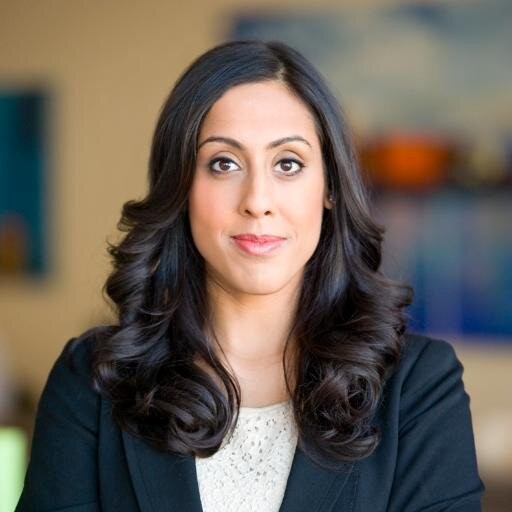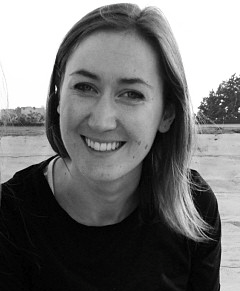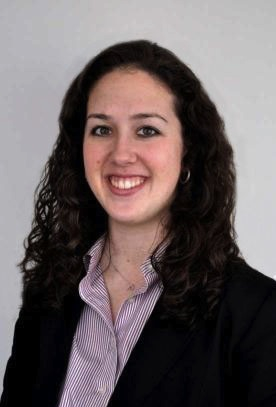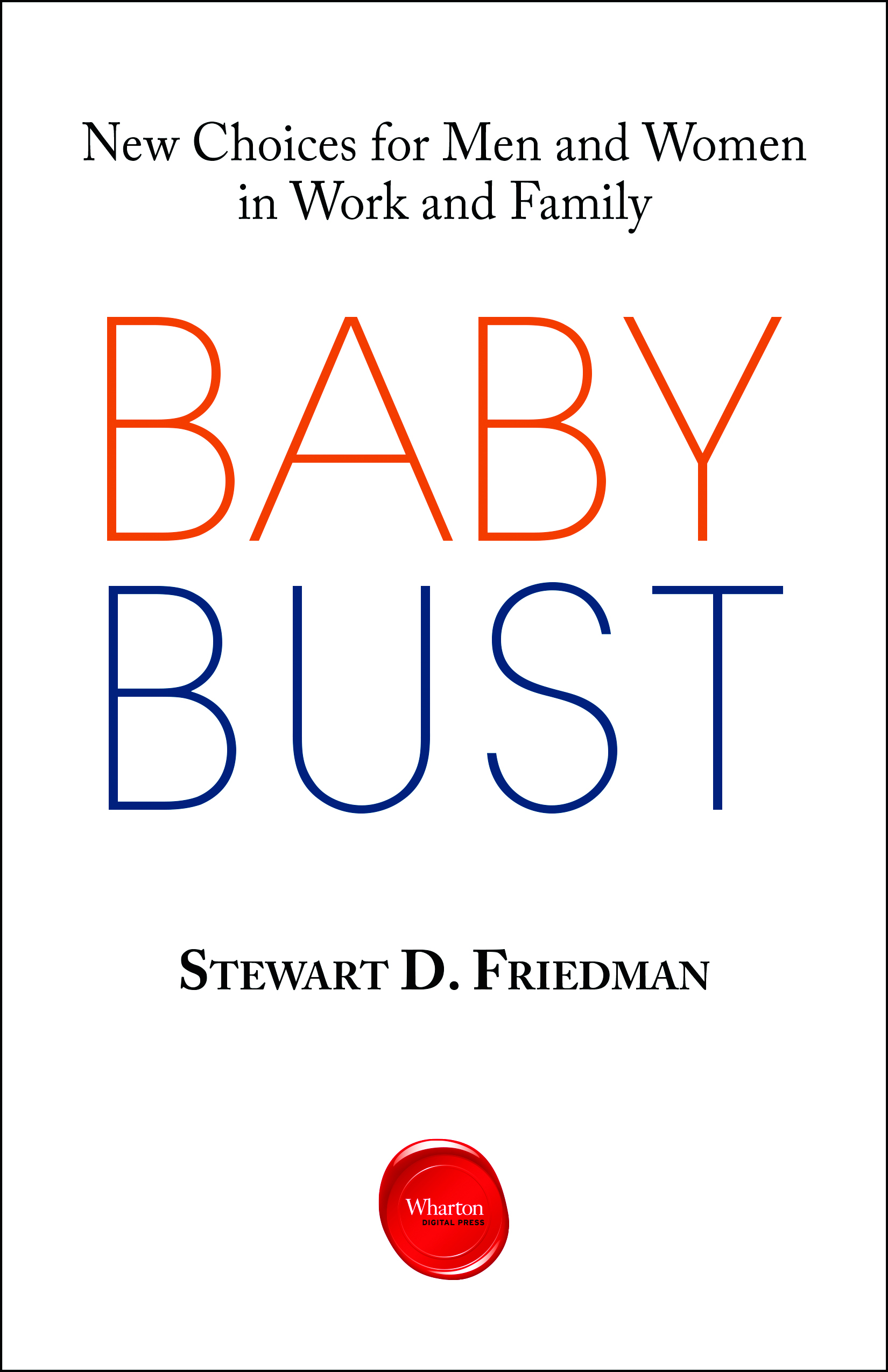Contributor: Morgan Motzel
Work and Life is a two-hour radio program hosted by Stew Friedman, director of the Wharton Work/Life Integration Project, on Sirius XM’s Channel 111, Business Radio Powered by Wharton. Every Tuesday from 7 pm to 9 pm EST, Stew speaks with everyday people and the world’s leading experts about creating harmony among work, home, community, and the private self (mind, body, and spirit).
This week on Work and Life, Stew Friedman spoke with his former student and Wharton alumna Erica Dhawan (W’07) about her work studying the power of human connections and work-life engagement. The Founder and CEO of Cotential, a unique systems consultancy, Dhawan discusses the rise of informal networks and social movements as a result of our growing connectivity and how these interactions spur innovative thinking and inspire courageous change.
The following are edited excerpts of Friedman’s conversation with Dhawan:
Stew Friedman: Tell us more about the kind of work that Cotential does.
Erica Dhawan:  I’ll frame it in a short story for you. A few years ago, a leading New York-based law firm realized something peculiar. It started when the CFO noticed that the Millennial associates at the firm were billing fewer hours than the firm’s historical average. This was strange because they were giving the Millennial associates more work than previous cohorts, not less. More importantly, because law firms bill by the hour, this was also concern for the business. When the senior leadership team started to dig into this, they discovered that a group of 50 or 60 associates had all joined the firm as a class and created their own Twitter or chat-like tools to help each other solve cases faster. The communication included questions like “Where can I find this legal citation?” or “Does anyone know that law school case we did? I’m working on a similar case right now.” Over time, this became a rapidly productive community that senior leaders had no idea about, but that was actually changing the bottom line. Typically senior leaders would see this as a concern, but they ended up using this learning to their benefit.
I’ll frame it in a short story for you. A few years ago, a leading New York-based law firm realized something peculiar. It started when the CFO noticed that the Millennial associates at the firm were billing fewer hours than the firm’s historical average. This was strange because they were giving the Millennial associates more work than previous cohorts, not less. More importantly, because law firms bill by the hour, this was also concern for the business. When the senior leadership team started to dig into this, they discovered that a group of 50 or 60 associates had all joined the firm as a class and created their own Twitter or chat-like tools to help each other solve cases faster. The communication included questions like “Where can I find this legal citation?” or “Does anyone know that law school case we did? I’m working on a similar case right now.” Over time, this became a rapidly productive community that senior leaders had no idea about, but that was actually changing the bottom line. Typically senior leaders would see this as a concern, but they ended up using this learning to their benefit.
SF: They would see this as a concern, because it was somehow beyond the standard way of operating?
ED: Yes. It was beyond the standard way of operating, but it also caused billing hours to go down. As we know, the legal industry is structured to make money through billing hours. The other interesting piece of this story was that these Millennial associates were to be promoted through an evaluation of their billing hours, but they were choosing to work faster with fewer hours in the service of getting the work done rather than in the service of the incentive structure of their industry. Eventually this law firm, along with others, decided to learn from these productivity enhancements. They are now hiring fewer people because they’re understanding from these informal networks how to get work done faster. They’ve created a Twitter-at-work program, for example, teaching lawyers at all levels how to use these tools to work faster. Now they’re challenging other standard practices and have created a task team to think differently about how performance metrics need to be changed in order to align with the new technologies and the new faster ways of doing work.
Cotential fits into this story because we help organizations identify these untapped informal networks, just like this law firm’s group of Millennials. We help them first identify, and then think about how to harness informal networks to become a source of value for the organization. Beyond that, we consider how a company can turn these informal networks into systemic sources of value across the organization, especially given that we’re living in a world of hyper-connectivity. Today, we can connect much faster, and that’s leading to immense breakthroughs, whether that means solving a business unit problem through a crowd or network or connecting customers in a way that gives insight to an organization to solve a problem in minutes rather than months.
SF: Is Cotential’s purpose to go on an anthropological search for innovation that already exists inside the organization, or do you introduce ideas for tapping informal networks that haven’t yet been tried?
ED: It’s a combination of both. I think there are many organizations that try to develop ideas on the outside of a company and help companies implement them, but then they never get executed. I truly believe that all the best ideas are actually inside the people currently in the organization, but they’re often not activated because there aren’t networks within the organization that enable these ideas to be generated, tested, and executed efficiently. Frito-Lay is an example of the positive potential that internal networks hold. At Frito-Lay, there are employee diversity groups, including a Latino group. A few years ago, the Latino group said to themselves, “Why don’t we have a Doritos guacamole chip? It would do so well with the Latino customer segment.” They came up with this new idea because they had already been “recombined” within Frito-Lay in this Latino network, and then they tested it and made it come to life.
SF: When you say “recombined”, what do you mean?
ED: I mean that they had already built an informal network within the company; they were already seeing each other on a consistent basis because of their membership in the Latino employee resource group. Because they were connected through this niche group, they were able to come up with this idea and pitch it to the product innovation department. This idea ended up being a $100 million product.
SF: Wow. That wouldn’t have happened had they stayed within their normal job functions and had not been able to communicate with each other across the firm in this informal network set up.
ED: Exactly.
Dhawan’s work demonstrates the creative potential that informal networks can bring to stagnant companies and industries. Have you ever witnessed the power of a chance encounter in generating a great idea? Is there anything that your organization does to encourage the development of casual connections across the firm? Join us in the comments below with your thoughts and experiences.
To learn more about Dhawan’s work, visit her organization’s website at cotential.co or send her a shout out on Twitter @edhawan.
Tune in to Work and Life tonight, Tuesday, April 8th at 7 PM Eastern on Sirius XM Channel 111 for conversations with Julie Smolyaksy, President and CEO of Lifeway Foods and the youngest female CEO of a publicly-held firm, and Maggie Jackson, former Boston Globe columnist and author of Distracted: The Erosion of Attention and the Coming Dark Age. Visit Work and Life for a full schedule of future guests.
About the Author
 Morgan Motzel is an undergraduate junior in the Huntsman Program in International Studies and Business at Penn focusing on Management and Latin America.
Morgan Motzel is an undergraduate junior in the Huntsman Program in International Studies and Business at Penn focusing on Management and Latin America.
 I think there’s much more focus on the pros and cons than there was even a few years ago. I think back to my time as an undergrad. My main considerations then were definitely different from how I evaluate my life now as a graduate student.
I think there’s much more focus on the pros and cons than there was even a few years ago. I think back to my time as an undergrad. My main considerations then were definitely different from how I evaluate my life now as a graduate student. you think of your first job, and you want to jump quickly to a great place. I think people didn’t really see that first job as something they would do forever so the goal was to get to that first stepping stone and see where you would go from there.
you think of your first job, and you want to jump quickly to a great place. I think people didn’t really see that first job as something they would do forever so the goal was to get to that first stepping stone and see where you would go from there. Kristina Milyuchikhina: When I got into the Wharton MBA program, I was recently married and one of the important questions for me was to decide whether school fit in my plans to start a family. After discussions with my husband, we agreed that we would try to do both. I was able to leverage the University of Pennsylvania’s amazing medical facilities, an insurance plan that covers maternity, and the course match system at Wharton which allows you to construct your perfect schedule.
Kristina Milyuchikhina: When I got into the Wharton MBA program, I was recently married and one of the important questions for me was to decide whether school fit in my plans to start a family. After discussions with my husband, we agreed that we would try to do both. I was able to leverage the University of Pennsylvania’s amazing medical facilities, an insurance plan that covers maternity, and the course match system at Wharton which allows you to construct your perfect schedule. Well my friends at school were shocked, but they were very welcoming. But it’s not only about support, it’s also about preparation. For example, getting into business school is a long process, and you have to prepare for it. In many ways, starting to have a family is a similar process, and you can prepare yourself for it as well. I did an enormous amount of research. I researched everything from facilities to logistics to apartments. I was plenty ahead in my course load. I was working with the MBA Program Office to get them ready to help me collaborate with professors if I missed any classes.
Well my friends at school were shocked, but they were very welcoming. But it’s not only about support, it’s also about preparation. For example, getting into business school is a long process, and you have to prepare for it. In many ways, starting to have a family is a similar process, and you can prepare yourself for it as well. I did an enormous amount of research. I researched everything from facilities to logistics to apartments. I was plenty ahead in my course load. I was working with the MBA Program Office to get them ready to help me collaborate with professors if I missed any classes. Alice Liu is an undergraduate senior studying Management at The Wharton School and English (Creative Writing) at the College of Arts & Sciences.
Alice Liu is an undergraduate senior studying Management at The Wharton School and English (Creative Writing) at the College of Arts & Sciences.  For me it was about career progression. I was at a certain level in my career where I was ready to make the next move, and I wanted to make sure that I had the best education possible to help me get to that next level.
For me it was about career progression. I was at a certain level in my career where I was ready to make the next move, and I wanted to make sure that I had the best education possible to help me get to that next level. SF: Who are the important people – the key sponsors or mentors – who have influenced you and helped you get here?
SF: Who are the important people – the key sponsors or mentors – who have influenced you and helped you get here? Liz Stiverson is a 2014 MBA candidate at The Wharton School. Reach her in the comments section of this post.
Liz Stiverson is a 2014 MBA candidate at The Wharton School. Reach her in the comments section of this post. In a sea of macho stereotypes, new voices are changing the face of manhood. One of them, a niche men’s lifestyle website called
In a sea of macho stereotypes, new voices are changing the face of manhood. One of them, a niche men’s lifestyle website called  Arjan Singh is an undergraduate sophomore studying economics at The Wharton School.
Arjan Singh is an undergraduate sophomore studying economics at The Wharton School.
 Alice Liu is an undergraduate senior studying Management at The Wharton School and English (Creative Writing) at the College of Arts & Sciences.
Alice Liu is an undergraduate senior studying Management at The Wharton School and English (Creative Writing) at the College of Arts & Sciences.